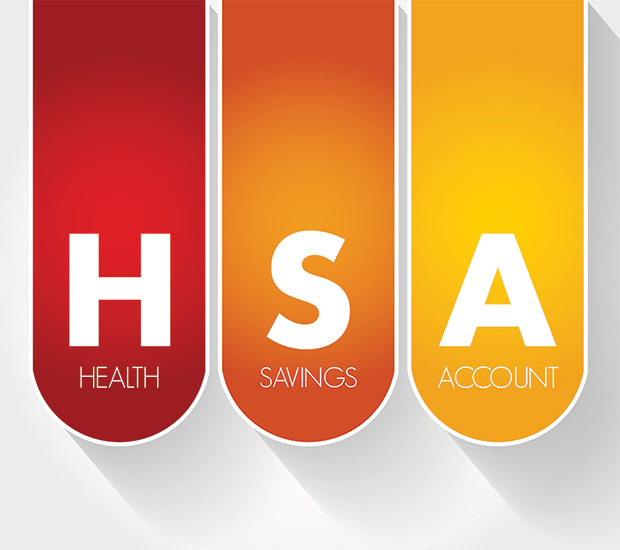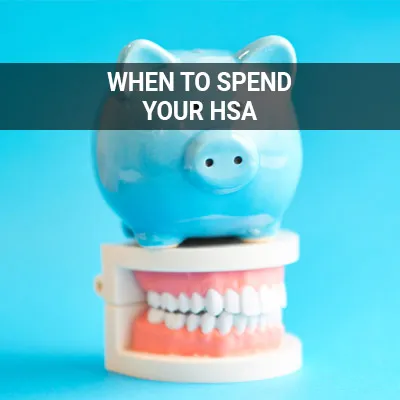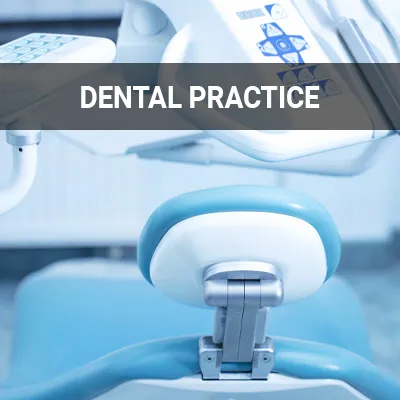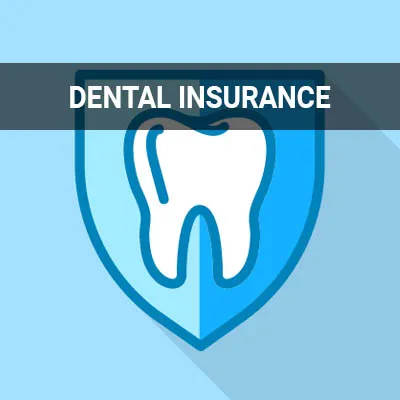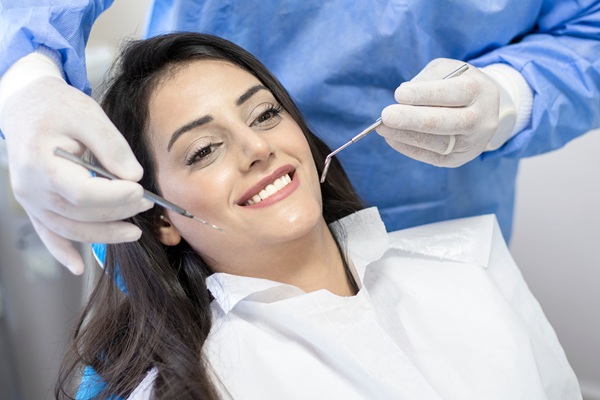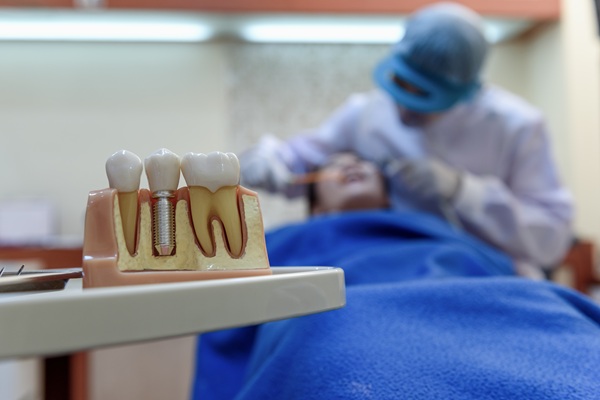Health Care Savings Account Modesto, CA
Opening a health care savings account can help people cover their out-of-pocket costs. People can use these unique, tax-advantaged accounts to pay for current or future healthcare expenses for you, your spouse, and your dependents. When combined with a high-deductible healthcare plan, people can receive tax advantages to save money in the long-run.
If you are looking to save money while taking care of your oral health, a health care savings account, HSA, can help. Our team at Great Smiles Dental can help you learn more about HSAs and other coverages. Call us at (209) 222-3636 to learn more about our services or schedule an appointment.
How an HSA Works
An HSA is a type of savings account that is only applicable for qualifying health care expenses. It complements a high-deductible health plan, or HDHP, to help control health care costs. Unlike FSAs, patients own and control all the money in an HSA. There are certain qualifying factors one must meet to open up an HSA. Patients must be under the age of 65 and have an HDHP as their only health insurance.
HSAs may be offered through employers, or patients may start an account independently through their bank or another financial institution. Patients must not be able to be claimed as a dependent on someone else's taxes or have received veteran's benefits within the last three months. They also cannot have a health care flexible spending account (FSA) or health reimbursement account (HRA).
“An HSA is a type of savings account that can only be used for qualifying health care expenses.”
Pros and Cons of an HSA
According to Investopedia, there are several advantages to an HSA. For one thing, it covers a wide variety of expenses, including dental, medical, and mental health services. Contributions can also come from multiple people, including the enrollee, their employer, a relative, or anyone else who wants to contribute. Most commonly, however, contributions are made with pre-tax funds through an employer. Contributions that are made with after-tax dollars can also be deducted from one's gross income.
Of course, HSAs come with their own set of disadvantages as well. For instance, they are only available to people covered under an HDHP, which can be more financially burdensome than other types of health insurance. They may also place enrollees under pressure to save instead of using the money. Furthermore, using HSA funds for non-qualified funds before turning 65 will result in an income tax as well as a 20% penalty. Enrollees must also keep receipts to prove that their withdrawals were healthcare-related in case of an audit.
“Contributions that are made with after-tax dollars can also be deducted from one’s gross income.”
Tax Advantages of an HSA
Enrollees do not have to pay taxes on any money put into or taken out of an HSA, giving them several tax benefits. Moreover, if the HSA is offered through an employer, the enrollee can potentially save more taxes on their paycheck by making pre-tax payroll contributions.
They may also earn tax-free interest on their HSA funds, and, unlike FSA funds, HSA funds do not expire. Instead, they roll over on an annual basis. Furthermore, all HSA funds are available for penalty-free use once the enrollee turns 65 years of age.
“Enrollees do not have to pay taxes on any money put into or taken out of an HSA, giving them several tax benefits.”
Check out what others are saying about our dental services on Yelp: Health Care Savings Account in Modesto, CA
HSAs and Dental Services
While HSAs do not typically cover cosmetic dental services, they do cover routine procedures, such as checkups and cleanings. HSAs also tend to cover any dental procedures deemed medically necessary, including various preventative and diagnostic procedures. Common examples include bonding, crowns, dentures, extractions, fillings, and root canals.
However, patients may need to pay a copay, even with an HSA on their side. As such, it is best practice for enrollees to contact their employer and insurer with any questions or concerns they may have about their plan.
“While HSAs do not typically cover cosmetic dental services, they do cover routine procedures, such as checkups and cleanings.”
Questions Answered on This Page
Q. What dental treatments does an HSA cover?
Q. What are some of the pros and cons of an HSA?
Q. What are some of the tax advantages of an HSA?
Q. Do HSAs cover dental services?
People Also Ask
Q. How should people spend and invest their HSA contributions?
Q. Is dental insurance worth it?
Q. Who is the billing specialist?
Treatments Covered by an HSA
Dental services and HSA eligibility can vary; however, some common and necessary dental procedures are eligible. HSAs cover treatments that diagnose, treat, mitigate, cure, and prevent disease. HSAs cover most dental treatments deemed medically necessary, such as:
- Regular cleanings and routine visits
- Fillings
- Root canals
- Extractions
- Crowns
- Dentures and bonding
Even with an HSA, there may be a copayment for the patient. HSAs do not cover cosmetic dental treatments such as teeth whitening or regular dental expenses, such as toothpaste, toothbrushes, dental floss, and mouthwash.
“HSAs cover treatments that diagnose, treat, mitigate, cure, and prevent disease.”
Frequently Asked Questions
Q. Can I use my HSA funds on non-medical-related expenses?
A. Yes. However, using your HSA funds on non-eligible expenses will require you to be taxed on said expenses, as the initial contributions went tax-free. You may also face a 20% tax penalty if you are under the age of 65.
Q. Can I have more than one HSA?
A. Yes. Though you cannot have an HSA in conjunction with an FSA or HRA, you can open as many HSA accounts as you want. However, annual IRS contribution limits may still apply.
Q. What is the monthly or annual fee for an HSA?
A. The monthly fee for an HSA tends to be less than $5 a month, or around $30 a year. However, many HSAs do not require monthly payments, and others may waive or reduce these fees if enrollees maintain a minimum balance.
Q. What is the difference between an FSA and an HSA?
A. FSA funds are available on a "use-it-or-lose-it" basis, while HSA funds carry over from year to year. HSA funds are also entirely in the enrollee's control, meaning they stay with the enrollee even when they change jobs or move to a different state.
Q. What happens to my HSA when I change health insurance policies?
A. Since your HSA funds are entirely yours, your HSA will remain unchanged even if you change your health insurance plan. However, you will only be eligible to make future contributions to your HSA if you choose a qualifying plan.
Dental Terminology
Call Us Today
HSA can help you lower the costs of dental treatment. Our team at Great Smiles Dental can help. Call us today at 209-222-3636 to learn more about our services or schedule an appointment.
Helpful Related Links
- American Dental Association (ADA). Glossary of Dental Clinical Terms. 2024
- American Academy of Cosmetic Dentistry® (AACD). Home Page. 2024
- WebMD. WebMD’s Oral Care Guide. 2024
About our business, license, and website security
- Great Smiles Dental was established in 2014.
- We accept the following payment methods: American Express, Cash, Check, Discover, MasterCard, and Visa
- We serve patients from the following counties: Stanislaus County and San Joaquin County
- We serve patients from the following cities: Modesto, Oakdale, Turlock, Tracy, Stockton, Lathrop, Ripon, Atwater, Salida, Manteca and Ceres
- CA (License #33512). View License Information and Specifics
- National Provider Identifier Database (1629180617). View NPI Registry Information
- Healthgrades. View Background Information and Reviews
- Norton Safe Web. View Details
- Trend Micro Site Safety Center. View Details
Back to top of Health Care Savings Account
